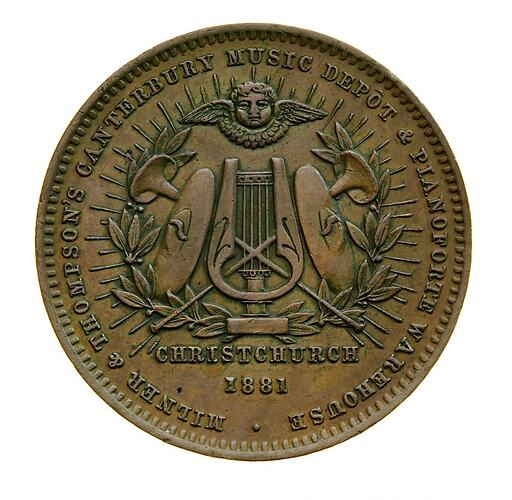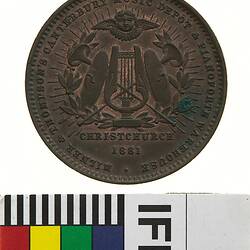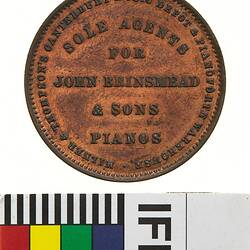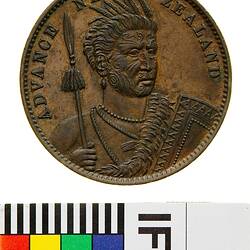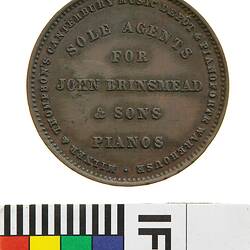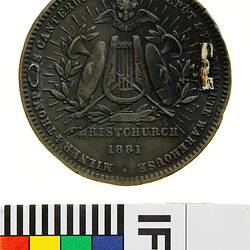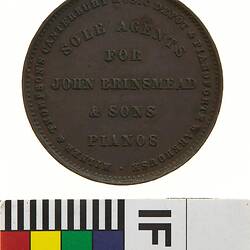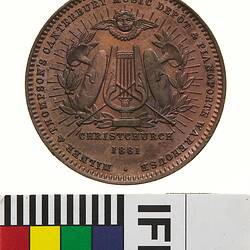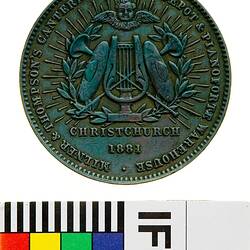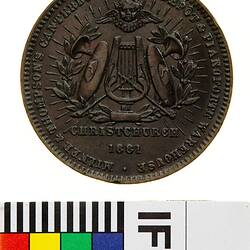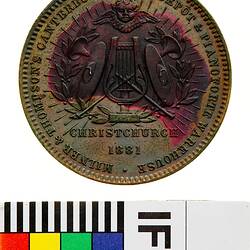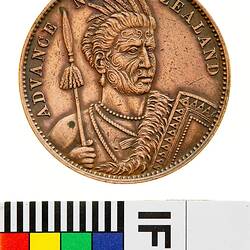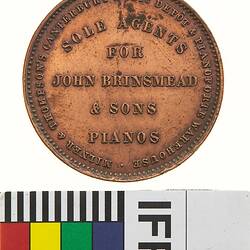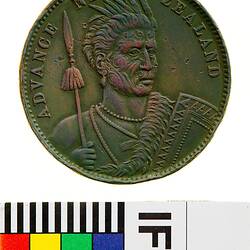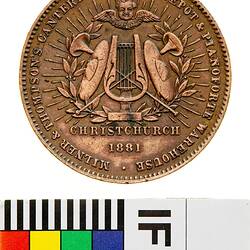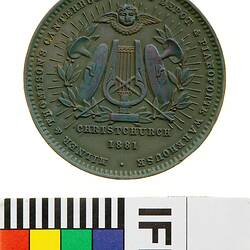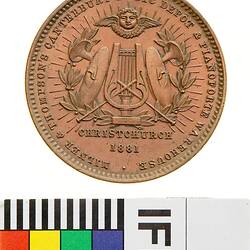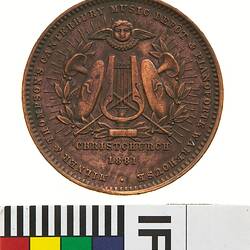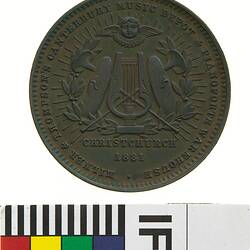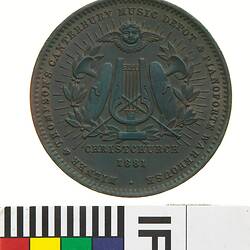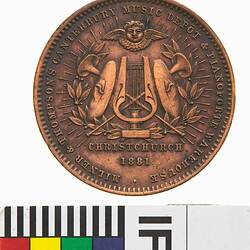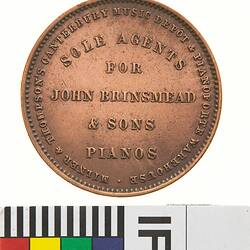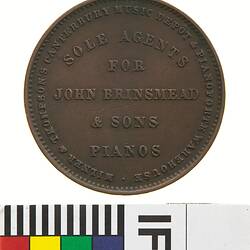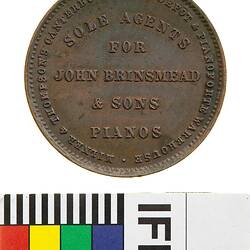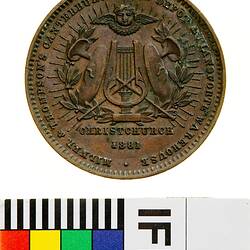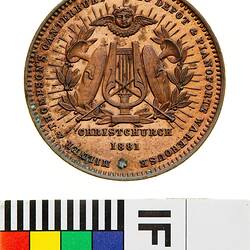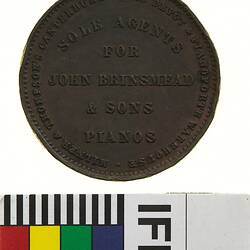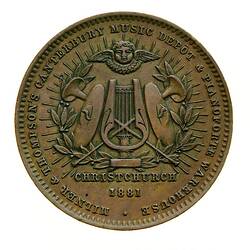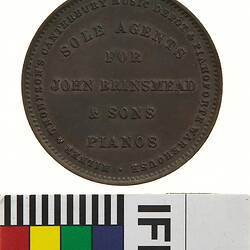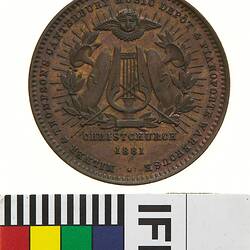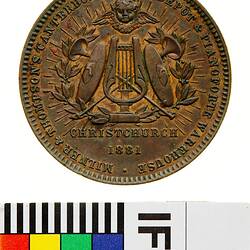Milner & Thompson's Music store, the Canterbury Music Depot, was first sited at the corner of Colombo Street and Chester Street in Christchurch. It was already a music store in 1874 when Robert Thompson bought the business. Some time soon afterwards he took John Milner into partnership and they worked together for 21 years, when Milner retired. Thompson continued in the business until he passed it to his sons in 1907. The business was bought by Charles Begg and Co. in 1920, and was still a going concern in 1950.
Canterbury numismatists did not supply any details of Milner's history, but they recounted that 'Robert Thompson was from early manhood intimately associated with music and matters relating to it. He was born in Harrow, Middlesex, England in 1835, educated at one of the celebrated Harrow schools, and arrived in Lyttleton in 1856.'
The partners moved their business from the corner of Colombo and Chester Streets to High Street some years after acquiring the business. It was while they were at their High Street address that they issued their tokens. Numismatist Alan Sutherland states that 'they were the last issuers of tokens in New Zealand, first circulating them at an Exhibition held here, primarily for advertising purposes, but they later formed part of the general currency.' The firm's tokens are all dated 1881, and were struck for them by the Melbourne firm Stokes and Martin.
The firm had a number of novel advertising schemes, in addition to the tokens. They installed a 'phantom piano' on the ground floor, which was set up to give the appearance of being played, while it was in fact being operated from a keyboard and set of pedals installed in the basement below.
Thompson also ran a Booking Office for plays from the store from 1881, the first production advertised being staged by the Montague-Turner Opera Co. of Sydney.
After the firm moved to the corner of Manchester Street and Bedford Row (in 1916), 'On Saturday nights (at that time 'late closing night') a pianist was stationed at the front door of the shop, and the police continually had to clear the footpath of the crowds who would gather to hear the excellent music thus provided freely.'
References:
The Canterbury Branch of the Royal Numismatic Society of New Zealand. 1950. They Made their Own Money: The Story of Early Canterbury Traders & their Tokens, pp 74-82.
More Information
-
Keywords
-
Localities
-
Authors
-
Article types
